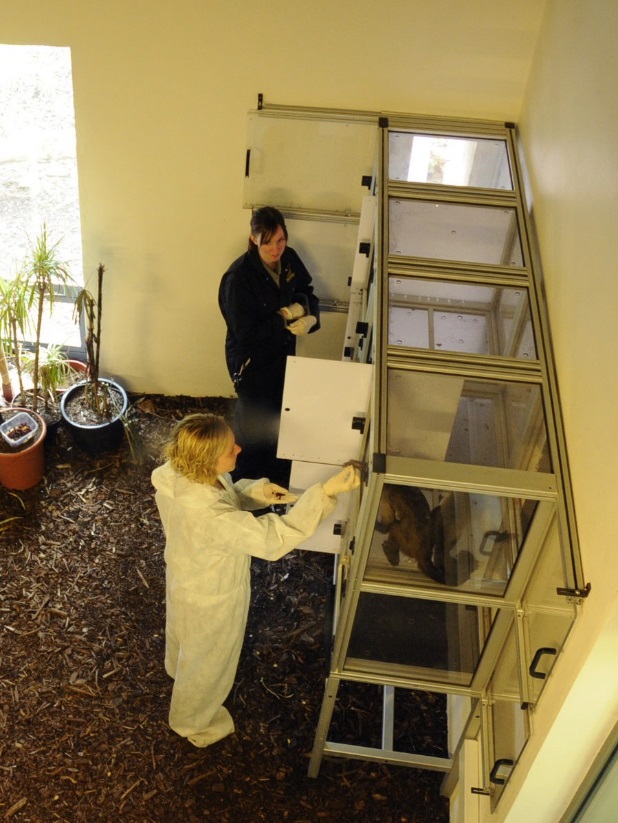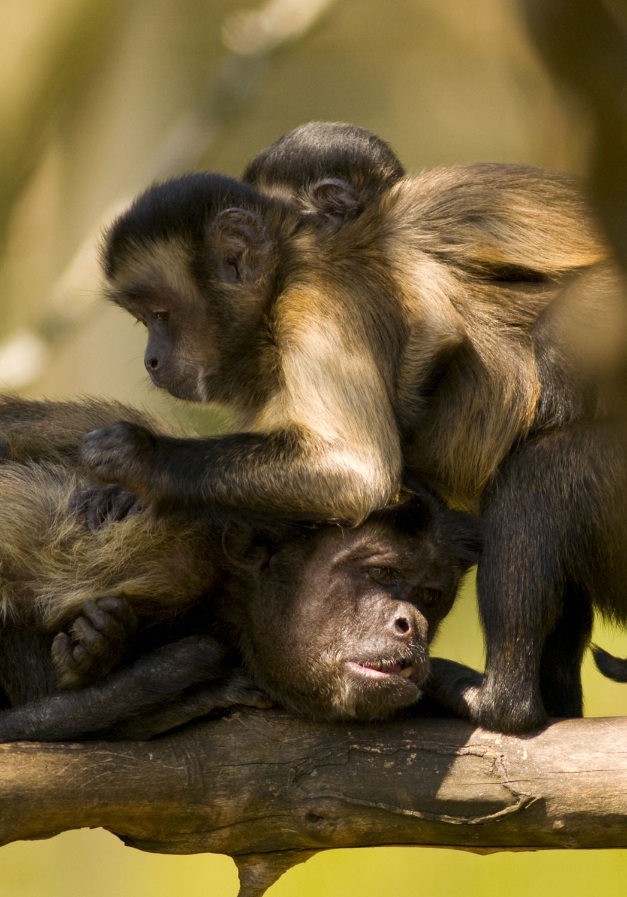Written by Suzi Ruby and Lara Wood
A recently published study based at Living Links has provided insight into the positive impact that voluntary involvement in individual cubicle research has on captive brown capuchin monkeys (Sapajus apella), whilst also highlighting aspects of research procedures which might be improved.
Given our interest in understanding the evolution of our own behaviour and intelligence, it is not surprising that primates are often the focus of zoo-based research testing. Living Links is a purpose built research and science public engagement centre. The research is voluntary and non-invasive. The monkeys are never food or water deprived and research sessions take about ten minutes and happen a maximum of eight times a week. However, it is essential that we monitor the impact of such research on the welfare of the research participants.
Whilst some previous studies indicated that participating in research may be beneficial for primates, others indicated that it may be stressful and/or disruptive to their lives.
The observational study was carried out by Psychology student Suzanne Ruby under the supervision of Professor Hannah Buchanan-Smith from the University of Stirling. Suzanne observed the individual behaviours and social interactions of the Living Links capuchin monkeys following involvement in non-invasive voluntary behavioural research versus other occasions when the monkey was not involved in research.
Most of the findings were positive: following participation in research, general activity and stress related behaviours appeared to be relatively unaffected whilst the number of positive social interactions were enhanced. A goal of environmental enrichment is to enhance such affiliative interactions, as these are indicative of a positive welfare state.
However there was also an increase in aggressive interactions following involvement in research; none of these interactions resulted in injury, but it is important to consider how we can minimise negative interactions. The researchers believe this aggression may have been caused by food held by the participating monkey as they left the research cubicle. Thus researchers will now be advised to allow the capuchins time to consume the food rewards before giving them access to the group.
This study has highlighted the need to carefully monitor research techniques but has largely demonstrated that taking part in research may have beneficial effects on captive primates. We must ensure that we continue to develop our understanding of the impact our interventions have on captive primates, and continue to improve our techniques.
Ruby, S. & Buchanan‐Smith, H. M. (2015). The effects of individual cubicle research on the social interactions and individual behavior of brown capuchin monkeys (Sapajus apella). American Journal of Primatology.



